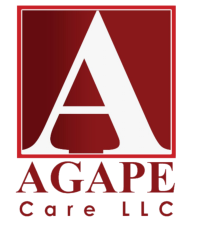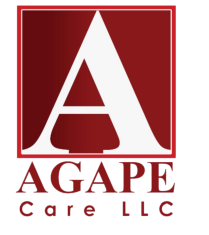Managing Medication for Elderly Parents and Older Adults: A Complete Guide for Caregivers and Medication Management
Common Medications for Elderly Parents and Older Adults
As elderly parents and older adults age, they often require certain medications to manage chronic health conditions. Common prescriptions include those for blood pressure control, cholesterol, diabetes, and arthritis. Medications for heart-related issues, like beta-blockers and anticoagulants, are also frequently prescribed. Understanding these medications and their purpose enables caregivers to administer medication effectively and support their loved ones’ health.
Potential Side Effects and Drug Interactions When Seniors Take Their Medication
Medications for elderly parents and older adults can have side effects that may significantly impact their daily life. For example, dizziness or gastrointestinal discomfort is common but can be more severe in older adults. Drug interactions, especially with over-the-counter medications purchased from the pharmacy, are also a critical concern. Multiple medications can interact in harmful ways, so being aware of these potential risks is essential for safe medication management. Consulting a primary care provider helps caregivers ensure that all medications, whether prescribed or over-the-counter, are used safely.
The Importance of Regular Medication Reviews with Primary Care Providers
Scheduling regular medication reviews with primary care providers is crucial for ensuring the safety and effectiveness of each prescribed medication. During these reviews, doctors assess whether each medication is still necessary, effective, or if any adjustments are required. This proactive approach helps caregivers supervise medication safely and ensures that elderly parents and older adults are only taking the medications they need. Regular reviews also help prevent complications related to unnecessary or outdated medications.
Organizing and Storing Medications for Elderly Parents and Mature Adults: Ways to Help Caregivers
Using Pill Organizers and Dispensers to Help Older Adults Remember to Take Their Medication
Pill organizers and dispensers are valuable tools for supervise medication for elderly parents and mature adults. Options include daily or weekly pill cases, as well as electronic dispensers that release medications at scheduled times. These tools make it easier for older adults to remember to take their medication consistently, which is crucial for maintaining their health. Using these aids helps caregivers ensure that their loved ones adhere to their prescribed medication regimen.
Proper Storage Methods for Prescription and Over-the-Counter Medications
Proper storage is vital to maintain the effectiveness of both prescription and over-the-counter medications. Medications should be kept in a cool, dry place, away from direct sunlight, and always in their original containers with labels intact. Certain medications may require refrigeration, so check storage instructions carefully. Safe storage also helps prevent accidental ingestion, especially in households with children or pets. Consulting with a primary care provider about storage guidelines can help caregivers supervise medication storage effectively.
Creating a Medication Schedule to Help Older Adults Take Their Medication as Prescribed
Maintaining a consistent schedule is essential for the effectiveness of many medications. Creating a simple, easy-to-follow routine that aligns with daily activities can improve medication adherence. Charts, calendars, or mobile apps can be used to track doses, and setting reminders can help older adults remember to take their medication on time. Establishing an organized schedule reduces the risk of missed or doubled doses, ensuring that medications are taken as prescribed.
Communicating with Primary Care Providers for Better Medication Management for Mature Adults
Key Questions to Ask During a Medication Review with a Primary Care Provider
Effective communication with primary care providers is essential for managing medications for elderly parents and older adults. Caregivers should ask doctors and pharmacists questions about each prescription, including its purpose, proper dosage, and potential side effects. It’s also important to inquire about possible interactions with over-the-counter medications to avoid adverse effects. Regular discussions with healthcare professionals help caregivers manage medication safely and prevent medication-related issues.
Keeping an Updated Medication List for Older Adults
Maintaining an up-to-date list of all medications, including prescription and over-the-counter items, is critical for effective medication management. This list should include the medication name, dosage, frequency, and the prescribing doctor. Bringing this list to each primary care visit ensures that doctors have a complete view of the medications being taken and can make informed adjustments if necessary. An accurate medication list also helps caregivers prevent the risk of duplicating medications or missing important doses.
The Role of Routine Check-Ups in Safe Medication Use
Regular check-ups with a primary care provider allow for ongoing assessment of an elderly parent’s health and medication regimen. These appointments give doctors the opportunity to review the effectiveness of current medications, address any side effects, and make necessary adjustments. Routine medical visits ensure that elderly parents and older adults take their medications as prescribed, promoting better overall health and reducing the risk of complications.
Tips for Promoting Medication Adherence for Older Adults: Ways to Help Caregivers
Setting Reminders and Alarms for Consistent Medication Adherence
Reminders and alarms can be highly effective for helping older adults maintain their medication routines. Caregivers can use smartphone alerts, clocks, or dedicated reminder apps to notify their loved ones when it’s time to take each dose. Visual reminders, such as placing medications near frequently used items like the coffee maker or toothbrush, can also help older adults remember to take their medications on time.
Simplifying Medication Routines to Make Adherence Easier
Many older adults take multiple medications, which can make adherence challenging. Simplifying the medication routine by coordinating doses to be taken at the same time each day can reduce complexity. Weekly pill organizers can also make it easier for seniors to follow their schedule. Working with a primary care provider to adjust medication timing can further support a manageable regimen for older adults.
Monitoring Dosages and Making Adjustments as Needed
Caregivers should observe their loved ones’ habits as they take medication to ensure they are following the regimen correctly. If side effects or issues arise, consulting with a primary care provider can help determine if dosage adjustments are necessary. Monitoring medication use and making timely changes when needed supports safe and effective treatment for elderly parents and older adults.
Conclusion
Managing medications for elderly parents and older people requires careful organization, regular communication with primary care providers, and a focus on medication adherence. Understanding each medication’s purpose, creating an organized schedule, and using tools like pill organizers all contribute to safer and more effective care.
Routine medication reviews with primary care providers, combined with simple reminders and adherence strategies, can prevent complications and help older adults take their medications correctly. If you need assistance with managing medications or other home care services, Agape Care LLC in Houston, Texas, is here to help. Contact us to learn how we can support your family’s needs.


